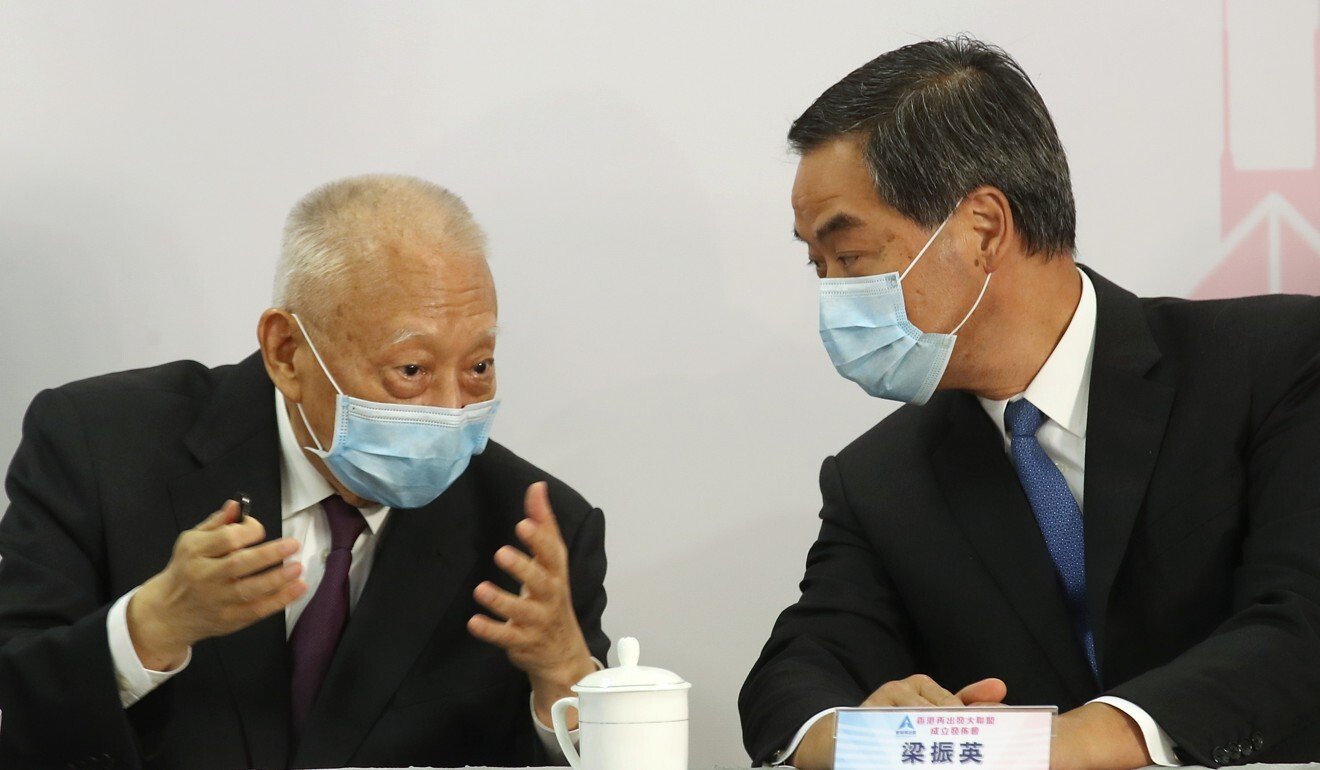Hong Kong News

Why police spent nearly HK$65 million on food from HK$180 million donation
The Hong Kong police’s welfare fund received nearly HK$180 million (US$23 million) in donations over the past year, more than 26 times that of the previous year, according to documents to be presented by the force to the city’s legislature.
According to the Police Welfare Fund annual report for the financial year of 2019-20, overall spending also nearly tripled to HK$114.36 million, with the expenditure for “refreshments for police officers on special duties” seeing the biggest increase to HK$64.85 million, 52 times more than the previous year, when only HK$1.22 million was spent.
But the annual report, to be presented to the Legislative Council at its meeting on Wednesday, did not include information on donors, nor did it go into detail on each of the items listed.
Established under the Police Force Ordinance, the fund’s main purpose is to provide amenities for the enjoyment of officers, former officers and their dependents. It also makes loans, grants, allowances and gifts to them and the families of deceased officers.
Some 95 per cent of the fund’s income comes from donations, with the rest from bank interest, the hire of police services and the sale of souvenirs.
Overall, the fund account climbed out of the red in 2019-20 to a surplus of HK$73.95 million. In 2018-19, it had a deficit of HK$19.89 million.
On spending, the report showed that in the last financial year the total expenditure was HK$114.36 million, which represented an increase of 190.4 per cent compared with 2018-19, when the amount was HK$39.38 million.
Apart from spending on refreshments for officers on special duties, grants to officers in hardship also saw a 50 per cent jump to HK$9.78 million, from HK$6.51 the year before.
“During Operation Tiderider, more than 10,000 frontline officers were on duty every day,” a law enforcement source said. “For operational needs, they sometimes would need to work long hours outside and might not be able to get back to the police station for meals. There were also times they did not have time to settle down to eat.
“So, officers would be given snacks, energy bars, cakes, biscuits or drinks for them to consume when on duty.”
Other supplies also included daily necessities such as toothpaste, toothbrushes and medicine, according to the source.
Another law enforcement source said supplies funded included folding beds and sleeping bags, as well as massage chairs, costing between HK$5,000 and HK$6,000 each.
These were placed in locations such as the auxiliary police force headquarters in Kowloon Bay, and the Police Sports and Recreational Club in Mong Kok, where officers were mainly stationed while on standby or taking a break during the social unrest.
Part of the money was also used for expenditures for officers who got approval and received medical treatment at private hospitals after they were injured during the protests.
In a statement issued late on Monday, the police force said there were strict procedures to vet the donations, and the accounts would be audited by the Audit Commission before being sent to Legco.
The force also said it received a considerable number of enquiries from members of the public on how they could donate to show support for the officers’ professionalism in handling the social unrest, and added it would not disclose where the money came from, in keeping with donors’ wishes.
On the cost of refreshment, police said the money covered more than 30,000 officers, and the average expense for each officer was less than HK$7 a day.

Legislative Council security panel member Elizabeth Quat said the increase in donations was proof that many residents supported the force’s handling of protests “during the social unrest last year”.
She added: “Officers faced aggressive rioters on the front line. Many people would like to make donations to show their respect and support to them.”
But former Democratic Party lawmaker Wu Chi-wai urged the police to name big donors.
“The police force is a sensitive government department,” he said. “It should show more transparency. The public has the right to know who donated money to the force, whether they are ordinary members of the general public who donate HK$10 or HK$20, or if they are Beijing’s liaison office or other pro-Beijing groups.”
In response, Quat said making that information public could expose donors to risk of retaliation from anti-government elements in the city.
“Donating money to the welfare fund is not donating money to individual officers,” she said. “It is for the whole police force. The force has a mechanism to screen whether a donation should be accepted or not.”
According to police, the day-to-day management of the fund is run by a committee, which is chaired by the deputy commissioner of police in charge of the force’s management. Members of the public can also apply to the committee to inspect information on the donations its receives.
At the height of last year’s social unrest, there were a series of donation campaigns by the pro-establishment camp to show support for the police force.
Friends of Hong Kong Association, which has former Hong Kong chief executives Tung Chee-hwa and Leung Chun-ying as honorary patrons, made a HK$10 million donation in July last year. The pair are now vice-chairmen of China’s top political advisory body, the Chinese People’s Political Consultative Conference.
The Greater Bay Area Homeland Youth Community Foundation, the Hong Kong Association for Promotion of Peaceful Reunification of China and the Hong Kong Federation of Overseas Chinese Association were also among the pro-Beijing groups that reportedly made donations of HK$1 million each to the police.











